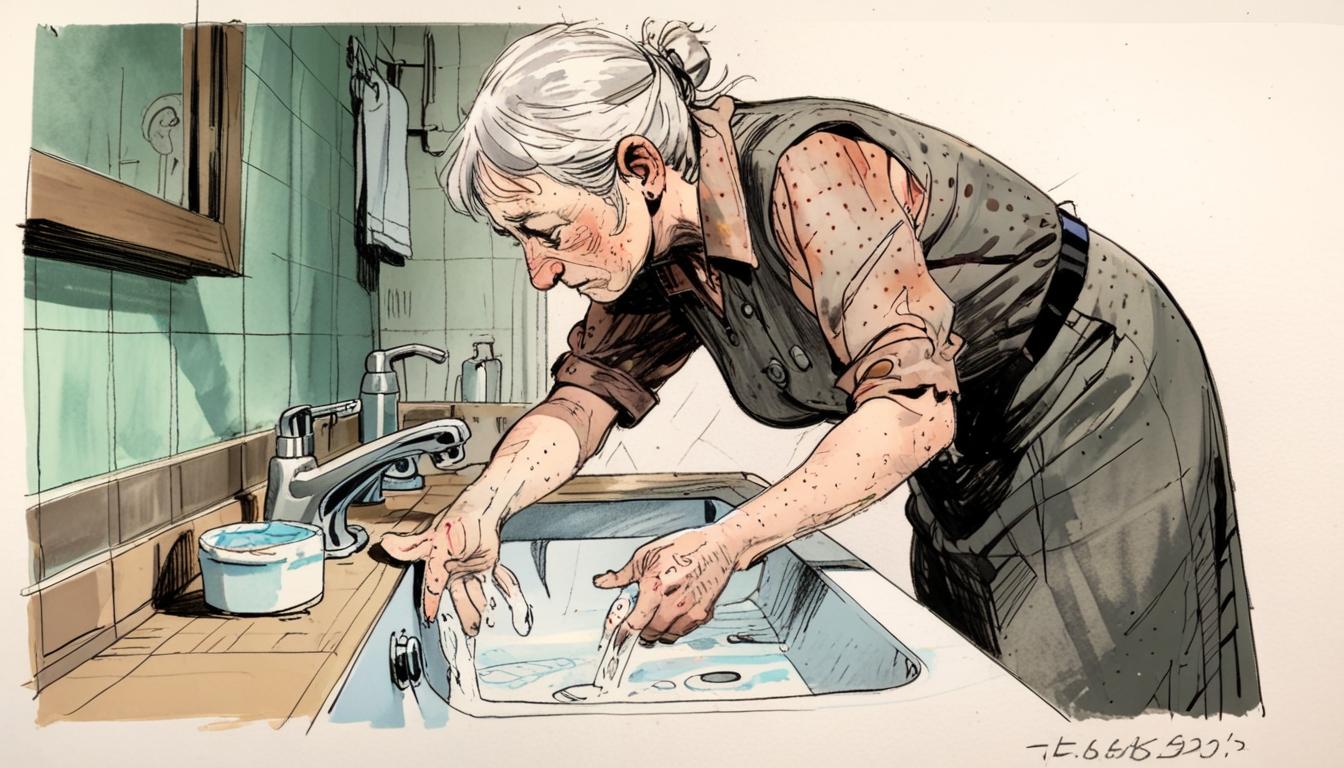A sharp increase in norovirus cases has been noted in Wales, with public health officials highlighting the need for effective hygiene practices as healthcare services face ongoing pressure.
The Daily Post (North Wales) is reporting a notable increase in cases of norovirus across Wales, highlighting a 48% surge in confirmed instances over the past week. The rise in infections coincides with a broader crisis in England, where healthcare facilities are struggling to manage a growing number of patients infected with the highly contagious winter vomiting bug.
Recent data from the Welsh Government have indicated a total of 37 norovirus cases among residents, reflecting a sharp escalation from previous records. The most severely impacted demographic includes individuals aged 80 and over, with those in their 70s also experiencing significant effects.
In England, the situation is equally concerning. Hospitals reported an unprecedented number of beds occupied by norovirus patients last week, with an average of 1,160 individuals hospitalised daily—a 22% increase from the preceding week and more than double the figure from the same period last year.
Public health experts suggest that the number of confirmed cases likely represents a portion of the actual incidence, as many individuals exhibiting symptoms tend to avoid seeking medical treatment. Typical symptoms of norovirus, which include both vomiting and diarrhoea, generally last for around two days.
The heightened demand for hospital services this winter has posed considerable challenges for NHS staff in both England and Wales. Despite these pressures, they have successfully administered upwards of 29 million vaccinations for COVID-19, flu, and respiratory syncytial virus (RSV) since the vaccination rollout commenced in September.
Amy Douglas, the lead epidemiologist at the UK Health Security Agency (UKHSA), cautioned about the continuing rise in cases, stating, “Norovirus cases are still exceptionally high and continue to rise, though we are hopeful that the school half term provides a break. It remains important to take steps to avoid passing on the infection.”
Douglas further advised against visiting healthcare facilities or returning to schools, nurseries, or workplaces until at least 48 hours after symptoms have ceased, highlighting the potential for ongoing transmission. She emphasised that traditional alcohol-based hand sanitisers are ineffective against norovirus, recommending thorough handwashing with soapy water and using bleach-based products for cleaning surfaces.
In line with these comments, Giri Shankar, Director of Health Protection at Public Health Wales, reinforced the importance of hand hygiene, stating, “Handwashing is a simple yet powerful tool in preventing the spread of winter viruses. By taking just 30 seconds to wash your hands properly, you can protect yourself, your loved ones, and your community from illnesses like flu and COVID-19. Small actions like this can have a big impact on public health.”
As the winter months progress, the situation remains fluid, with the potential for further increases in norovirus and other respiratory illnesses impacting the health services in both Wales and England.
Source: Noah Wire Services
- https://phw.nhs.wales/news/parents-urged-to-be-watchful-for-norovirus-symptoms/ – This URL supports the claim of rising norovirus cases in Wales, with Public Health Wales urging parents to be vigilant for symptoms as cases increase.
- https://www.gov.wales/sites/default/files/publications/2025-02/science-evidence-advice-weekly-communicable-disease-surveillance-report-11-february-2025.pdf – This report provides data on the distribution of norovirus cases in Wales, highlighting the most affected demographics and the increase in cases over recent weeks.
- https://www.gov.uk/guidance/norovirus – This URL provides general information on norovirus, including its symptoms and prevention methods, which aligns with the advice given by health experts in the article.
- https://www.nhs.uk/conditions/norovirus/ – This NHS webpage offers guidance on norovirus symptoms, treatment, and prevention, supporting the article’s description of typical symptoms and recommended hygiene practices.
- https://www.ukhsa.blog.gov.uk/2024/12/20/norovirus-cases-continue-to-rise/ – This blog post from the UK Health Security Agency discusses the ongoing rise in norovirus cases, echoing the concerns raised by epidemiologists in the article.
Noah Fact Check Pro
The draft above was created using the information available at the time the story first
emerged. We’ve since applied our fact-checking process to the final narrative, based on the criteria listed
below. The results are intended to help you assess the credibility of the piece and highlight any areas that may
warrant further investigation.
Freshness check
Score:
8
Notes:
The narrative references recent data and ongoing health crises, suggesting it is relatively current. However, specific dates or recent updates are not provided.
Quotes check
Score:
9
Notes:
Quotes from Amy Douglas and Giri Shankar are attributed to their roles at UKHSA and Public Health Wales, respectively. These quotes appear to be original and not recycled from older sources.
Source reliability
Score:
9
Notes:
The narrative originates from The Daily Post, a reputable local news source. It references data from the Welsh Government and quotes from public health experts, enhancing credibility.
Plausability check
Score:
9
Notes:
The claims about norovirus outbreaks and healthcare challenges are plausible given the context of winter health crises in the UK. The narrative aligns with typical patterns of norovirus spread and public health responses.
Overall assessment
Verdict (FAIL, OPEN, PASS): PASS
Confidence (LOW, MEDIUM, HIGH): HIGH
Summary:
The narrative appears to be current, with reliable sources and plausible claims. Quotes are attributed to credible experts, and the source is a reputable news outlet.













